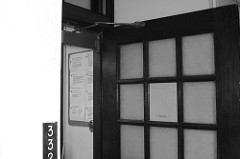Teaching as an art form
By Mary Bigelow
Posted on 2017-03-28
 I’m preparing to be a chemistry teacher. In addition to chemistry and teacher prep classes, what else should I study to become an effective teacher? More math or physics? —T., Colorado
I’m preparing to be a chemistry teacher. In addition to chemistry and teacher prep classes, what else should I study to become an effective teacher? More math or physics? —T., Colorado
While math and physics are important (especially if you’re pursuing other certifications), you also could become familiar with another language and the special education requirements in your state. You could pursue a personal interest in history and geography, literature, or the arts to better connect science with other subjects.
As a teacher, you’ll be “on stage” every day. Many teacher prep classes don’t address how to communicate with students and share your enthusiasm and passion for chemistry. That’s where acting experience or a class may help. This doesn’t mean putting on a contrived show but rather using your voice and body language effectively.
After several teachers in my school were recruited into a community theatre group, our confidence and communications in the classroom improved in several areas:
- Enunciating clearly and reaching every corner of the room without shouting and straining your voice
- Incorporating humor and timing
- Improvising based on student interests and questions
- Dealing with distractions
- Showing interest in a student’s question or idea, even if we’d heard it several times before
- Being mindful of your position in the classroom and moving around
- Using strategies such as props and wait-time
- Choosing a well-aimed glare or a quiet whisper to stop some misbehaviors
Who knows what topics you could change from dull to interesting for students?
Online Resources:
- It’s not what you say, it’s how you say it
- Why Teachers Should Be Trained Like Actors
- Using Acting Skills in the Classroom
Photo: https://www.flickr.com/photos/spcummings/361167519/
Disclaimer: The views expressed in this blog post are those of the author(s) and do not necessarily reflect the official position of the National Science Teaching Association (NSTA).

